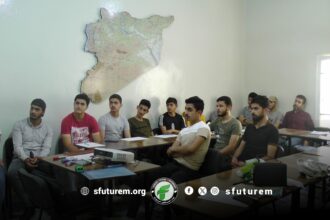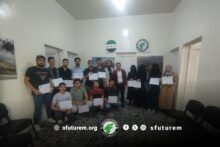Attracting Foreign Investments: An Overview

The importance of attracting foreign investments to any country, including Syria, is multifaceted. It includes providing foreign currency, as Foreign Direct Investment (FDI) contributes to increasing the flow of foreign currencies into the country, which helps strengthen foreign exchange reserves and reduce pressure on the trade balance. Foreign investments also help create job opportunities, as foreign investment projects contribute to generating new jobs, thereby reducing unemployment rates and increasing national income.
Additionally, foreign companies often bring with them advanced technologies and management expertise, contributing to the development of local industries and improving productivity. Foreign investments also aid in expanding local markets by producing new goods and services or increasing the production capacity of existing ones.
Moreover, foreign companies often make significant investments in developing infrastructure, such as roads, ports, and airports, thereby improving the overall investment environment. Foreign investment also attracts the attention of other international investors, enhancing international partnerships and opening up new prospects for economic cooperation.
However, it is important to note that attracting foreign investments requires creating a favorable investment environment, which includes:
- Political and security stability, as it is one of the most critical factors attracting foreign investors.
- Sound economic policies that must be clear, stable, and investment-friendly.
- Developed infrastructure capable of meeting investors’ needs.
- Availability of skilled and trained labor.
- Offering attractive investment incentives to foreign investors.
Foreign direct investment can be a powerful driver of economic growth in Syria even before a comprehensive solution is reached, but it requires providing an attractive investment environment and coordinated efforts by the de facto authorities and the private sector.
Drawbacks and Negative Impacts:
While attracting foreign investments brings numerous benefits, like any economic activity, there are potential downsides to consider. Some of the key potential drawbacks of attracting foreign investments include:
- Heavy reliance on foreign investments may increase the local economy’s dependency on foreign investors’ decisions, making it vulnerable to global economic policy changes or decisions by the investing companies.
- Some foreign companies may exploit the host country’s natural and human resources unsustainably, leading to environmental degradation and worsening poverty and unemployment in the long term.
- Intense competition from foreign companies may result in the closure of many small and medium-sized local businesses, causing job losses and reducing economic diversity.
- Major foreign companies may interfere in the host country’s political and social affairs, weakening state sovereignty and negatively affecting its stability.
- Disparities in wealth distribution could arise, as focusing on major investment projects could increase the gap between the rich and the poor, with a limited benefit to a small segment of workers and the middle class.
- Profit outflows to foreign countries, as a significant portion of the profits generated by foreign companies is transferred abroad, which reduces the volume of local investments and weakens long-term economic growth.
To avoid these drawbacks, host countries must take precautionary measures, such as:
- Implementing strict laws and regulations to protect natural and human resources, ensure fair wealth distribution, and prevent foreign interference in internal affairs.
- Supporting local industries and encouraging innovation, research, and development to enhance the competitiveness of local companies.
- Negotiating with foreign companies transparently and setting clear terms in investment contracts that ensure the host country’s interests are safeguarded.
- Developing strategic economic development plans that take into account the challenges and opportunities associated with foreign investments.
Foreign investments can indeed be a strong engine for economic growth, but they must be approached cautiously, with efforts to avoid potential negative effects.
Challenges and Difficulties:
Foreign investments in Syria face significant challenges that hinder their entry and development. Some of the key challenges include:
- Security and political crisis: Syria has been experiencing an ongoing political and security crisis for years, creating an unstable and unsafe environment for investment.
- Economic sanctions: Many countries have imposed economic sanctions on Syria, making it difficult and complicated for foreign investors to engage, even in liberated areas.
- Damaged infrastructure: Syria’s infrastructure has suffered extensive damage due to the conflict, increasing investment costs and reducing its attractiveness.
- Severe energy shortage: Syria suffers from a sharp energy deficit, posing a significant challenge for energy-intensive industries.
- Volatile exchange rate: The Syrian exchange rate fluctuates significantly, adding risk to foreign investments.
- Liquidity shortage: The Syrian economy suffers from a severe lack of liquidity, making it difficult to secure financing.
- Widespread corruption and nepotism: These issues in public institutions increase business costs and erode confidence in authorities.
- Lack of skilled labor: The Syrian private sector faces a shortage of skilled workers needed to manage large investment projects.
- Complicated investment laws: Syrian investment laws are complex and unclear, making the investment process lengthy and difficult.
In addition to these challenges, there are sector-specific difficulties, such as:
- Agriculture sector: Faces water shortages and land degradation.
- Industrial sector: Suffers from energy shortages, lack of raw materials, and deteriorating industrial infrastructure.
- Service sector: Faces a lack of investment and a low level of services.
To overcome these challenges, the de facto authorities must take a series of actions, such as:
- Urgently resolving the political and security crisis.
- Lifting economic sanctions imposed on Syria.
- Rebuilding the destroyed infrastructure.
- Securing energy sources needed to operate industries.
- Stabilizing the exchange rate.
- Fighting corruption.
- Developing the workforce and providing the necessary skills.
- Simplifying investment procedures and offering incentives to investors.
Steps and Mechanisms:
Attracting investments to northern Syria presents a significant challenge given the current circumstances, but it is not impossible. This process requires the concerted efforts of multiple parties and the application of specific mechanisms. According to the economic office of the Syrian Future Movement (SFM), we propose the following mechanisms:
Providing a Safe and Stable Environment:
- Improve the security situation in the region and ensure protection for investors and their assets.
- Establish effective, transparent, and accountable institutions capable of delivering basic services to citizens.
- Enforce clear and decisive laws that protect property rights and streamline investment procedures.
Building Advanced Infrastructure:
- Develop road and transportation networks to connect the region to regional and international markets.
- Secure energy sources needed to operate investment projects.
- Improve water and sanitation services to ensure the health and safety of workers and residents.
Offering Investment Incentives:
- Provide tax incentives for new investors.
- Simplify import and export procedures.
- Offer industrial lands at affordable prices.
- Provide low-interest loans or grants for investment projects.
Investment Marketing:
- Organize events to promote investment opportunities in the region.
- Arrange visits for potential investors to explore the area firsthand.
- Utilize social media and the internet to promote investment opportunities.
Building International Partnerships:
- Collaborate with international organizations to provide financial and technical support for investment projects.
- Encourage foreign companies to invest in the region.
Developing Human Capital:
- Invest in education and training to provide a qualified workforce.
- Build the capacity of local institutions to manage investment projects.
Conflict Resolution:
- Establish effective mechanisms for resolving commercial and investment disputes.
Attracting investments to northern Syria requires significant efforts and innovative solutions. All concerned parties must work together to create an attractive investment environment, offer necessary incentives, and overcome the challenges facing the region.
At the economic office of the Syrian Future Movement, we emphasize:
- Any investment in northern Syria should be sustainable and consider local interests.
- There should be a fair distribution of the economic benefits from investments.
- Transparency must be ensured in all investment-related procedures.
Enas Nasr Al-Din
Economic Office
Research and Studies Department
Articles
Syrian Future Movement (SFM)






